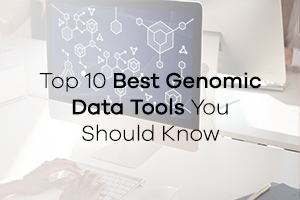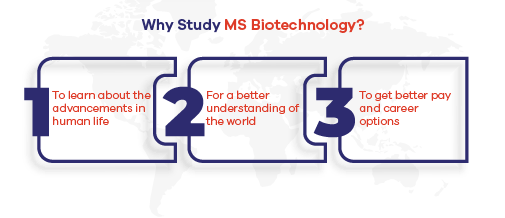Top 10 Best Genomic Data Tools You Should Know

As we dig deeper into the genome, the analysis of the genomic data collected gives a better understanding of human health and disease. Accordingly, to identify the genetic flaws in the system of organisms, researchers need genomic data tools. This means that if you are studying MS Biotechnology, you will need to know which tools you should use. So, let’s discover the top 10 best genomic data tools with their features!
A Brief Intro to Genomic Data Science
Before we dive into genomic data tools, first, let’s understand what genomic data science is. Genomic data science is a study that teaches researchers to decode the functional information hidden in DNA sequences. To do this, researchers use powerful computational and statistical methods. Then, this data helps them uncover how the differences in DNA affect human health and disease.
In brief, genomic data science emerged as a field in the 1990s to support two main laboratory activities:
- Experimentation
Generating genomic information from studying genomic signal processing, such as the genomes of living organisms and bacterial genome.
- Data analysis
Using statistical and computational genomic data tools to analyse and visualise genomic data. This includes processing data using algorithms and storing those data using software. From this process, researchers can make predictions related to genomic data.
Ultimately, both activities will help researchers gain insights from the vast amounts of genomic data.
Why Do We Need Genomic Data Tools?
In the human body, every single of the trillions of cells contains a complete copy of the genome. For instance, our DNA blueprint. In most cells, we can find two copies of the genome, which reflect about 6 billion DNA letters. From this fact, researchers are now generating more genomic data to understand how the genome functions and affects human health and disease.
How Do Scientists Use Genomic Data?
Simply put, researchers need to use special computational genomic data tools to research and interpret biological information within our DNA. Then, these tools help in managing the large volumes of data collected in research.
So, if you have the dream to do a professional genomic research Pakistan, you need to know better about these genomic data tools.
SpliceCenter
The first in the list is SpliceCenter. This is an effective bioinformatics tool for evaluating the impact of gene-splicing variation on specific molecular biology techniques. You will find multiple tools available within the composite package of SpliceCenter. Speaking of user-friendly tools for analysing a sample query genomic signal processing of varied organisms, this one is perfect.
Phred
Next, we have Phred, which is a base calling program for genomic sequences of DNA. The tool offers easy integration into automated data processing pipelines.
DIALIGN
Dialign is another advanced tool for performing the analysis based on genome sequences. The best part is that you can find different versions, including Anchored DIALIGN, CHAOS DIALIGN, DIALIGN TX, and DIALIGN PFAM. All these versions will execute distinct functions and give different outputs. Most importantly, you can adjust the parameters before executing a task.
BioGPS
This one is a free extensible and customisable portal for gene annotation. In addition, BioGPS is a reliable source for learning about genome, gene, and protein functions. All you need to do is simply search for the gene of interest with this tool. Then, you will be able to view gene annotation reports interestingly on the platform. Even better, you can also build your own gene and genome reports.
Genome Browser
Genome Browser is a composition of genomic data tools with various utilities. The tool helps you to configure parameters such as branch length, normalise length, branch labels, legend.
MAGeCK
MAGeCK bioinformatics tool is quite easy to use. Better yet, it has an easy pipeline to screen the genes in knockout experiments. This tool is also popular as an overly sensitive tool with low false discovery rate. The most excellent thing about the tool is that it provides documentation and tutorials for beginners to learn.
Breaking-Cas
Breaking-Cas is a genome-based bioinformatics database software. The tool helps in constituting the collection of bacterial genome, invertebrate Metazoa, protists, and more. This tool also provides the flexibility to adjust the parameters before executing a task.
CRISPOR
CRISPOR is a program for computational analysis of genomics. This platform helps in designing, evaluating, and cloning guide sequences. One excellent thing to note from this tool is that it generates results faster with high accuracy.
ASCAT
ASCAT or Allele Specific Copy Number Analysis of Tumours tool helps to derive copy number profiles of tumour cells. So, basically, this tool reveals tumours purity and ploidy from SNP array or massive parallel sequencing data.
CoMet
CoMet is actually a web server and freely available tool for comparative analysis of Metagenomes based on protein domain signatures. The server allows you to analyse the taxonomic and functional composition of the sample.
Those are the top 10 best tools to help you learn Biotechnology. Overall, to help you get more knowledge about Biotechnology, these tools are compulsory.
Why Study MS Biotechnology at MAJU?

Indeed, if you want to study more about Advance in Genomics, MAJU is the best university you should choose. Furthermore, this 2-years program will give you proper knowledge about other essential studies, such as:
- Research Methods in Biotechnology
- Advances in Cell and Molecular Biology
- Techniques in Biotechnology
- Biostatistics
Moreover, there are some compelling reasons to study MS Biotechnology at MAJU (Muhammad Ali Jinnah University).
Advancements in Human Life
No doubt, the main beneficiary of Biotech has been humans. Thanks to Biotechnology, human life has drastically improved. Hence, we can now comfortably lead a long healthy life. In fact, Biotech has innovated prosthetics, speech therapy, and many other technological advancements over the years.
A Better Understanding About the World
Biotechnology helps us to understand and know more about the world around us. For instance, Biotech has expanded the knowledge bank for animals, plants, environment, and the earth. With the help of genomic data tools, many scientists create sustainable and environmentally friendly products.
Better Pay and Career Options
Graduates from MS Biotechnology program gain employment in various industries. Eventually, you can choose to work in some fields like:
- Animal Biotech
- Plant Biotech
- Environmental Biotech
In summary, we must say that Biotechnology is a niche area that requires more candidates to work with genomic data tools. This way, we can create a more sustainable future for human beings. So, if you wish to contribute to a more sustainable future, you should start pursuing MS Biotechnology at MAJU!



